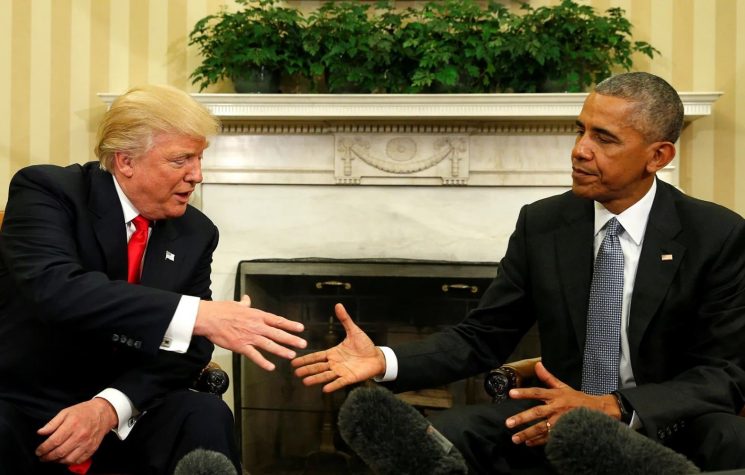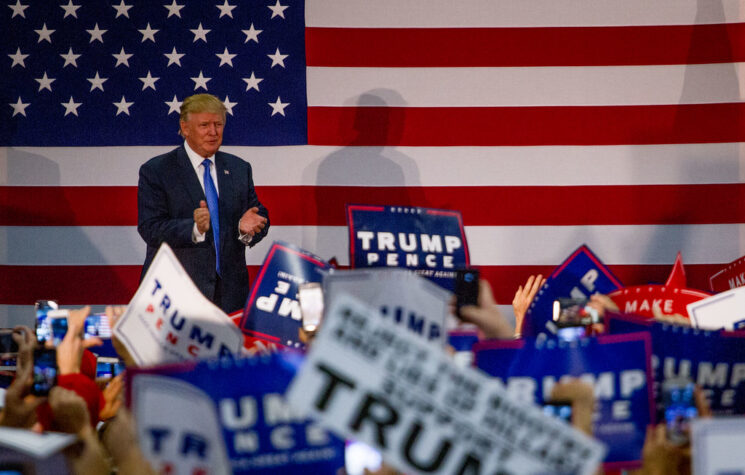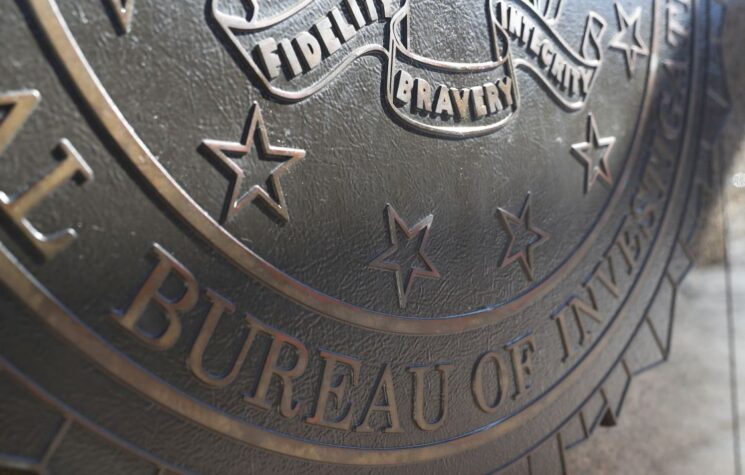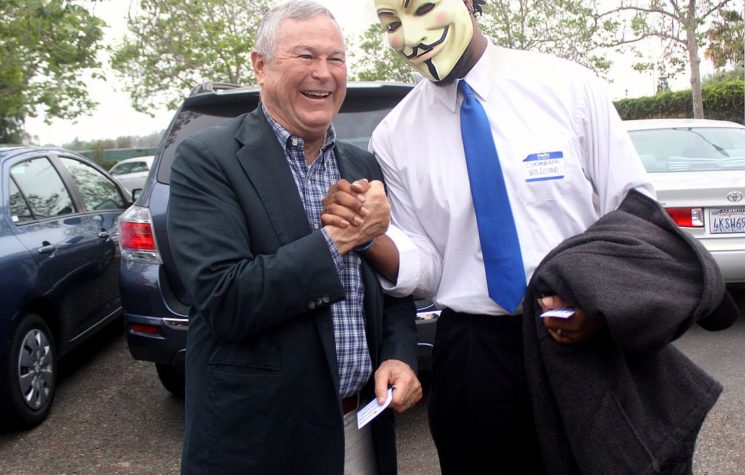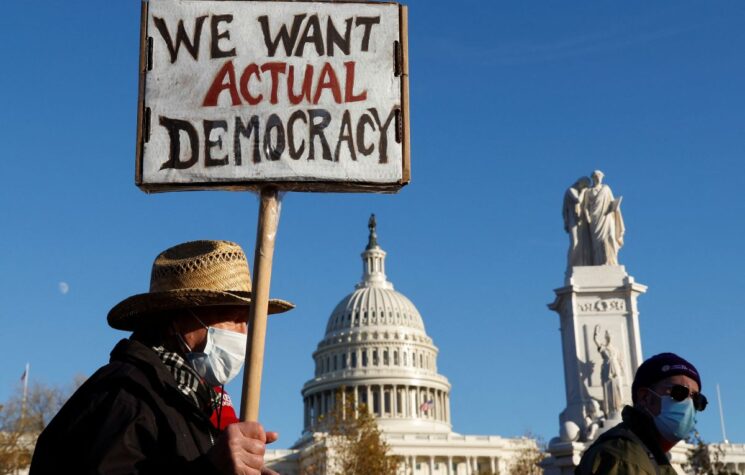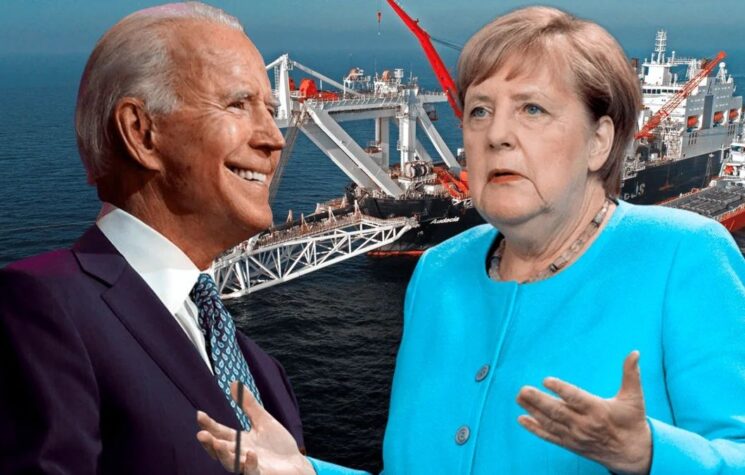With no advance warning, the Department of Justice has decided to drop its case against Concord Management and Consulting, one of three Russian companies accused of using Facebook to “sow discord” and manipulate voters into doing the Kremlin’s bidding.
It seems that prosecutors had no choice according to the New York Times since defendants were “exploiting the case to gain access to delicate information that Russia could weaponize.” Instead of admitting to their old dirty tricks, in other words, they were busy thinking up new ones in order to take advantage of innocent Americans yet again.
Those awful Russians! Doesn’t it show that they’re all guilty as hell regardless of whether there’s a trial or not?
Well no, actually, it doesn’t. What it shows, rather, is that the case never made much sense to begin with and now, after years of headlines, the DOJ is finally putting it out of its misery. Questions remain. If prosecutors are so concerned now that the Russian defendants would somehow take advantage of the judicial process and twist it to their advantage, why didn’t they think of that in the first place? If they knew the case posed special problems, why did they go for an indictment at all? Why not hit the company with a few additional international sanctions and leave it at that?
After all, a prosecutor has to think about not a lot of things before going to trial, not only whether a case is provable but whether the process will be too expensive, whether it will compromise other investigations, whether the penalty will be too light to warrant all the fuss and bother, and so on. These are questions to ponder before filing charges, not after.
Yet they’re questions that Special Prosecutor Robert Mueller’s super-high-powered legal team somehow managed to skip. Which leads to another question: why? Why didn’t they work through the various problems that a trial might raise? Could it be that after issuing the original charges, they figured that the it wouldn’t matter because a trial would never take place?
This is what skeptics have long maintained, this one included. Since the three companies and thirteen individuals named in the original February 2018 indictment were all Russian, it seemed logical to assume that they would remain in situ, beyond the reach of U.S. law. Why fly all the way to Washington just to throw yourself on the mercy of a federal court at a time when anti-Russian passions were shooting through the roof? Who could be so crazy?
No one, it seemed, except for one company that did just that. To universal astonishment, Concord Management and Consulting LLC, one of three indicted corporations owned by Russian businessman Yevgeny Prigozhin, hired the prominent law firm of Reed Smith in May 2018, entered a plea of not guilty, and demanded its day in court.
The Mueller team, according to all available evidence, was stunned. After all, it had all seemed so simple. If a trial was not forthcoming, then an indictment could say whatever prosecutors wanted it to say. They could accuse Prigozhin and his entourage of anything and everything, and as long as they didn’t have to lay it out before a judge and jury, no one would care. The press would get its story, Mueller would get his acclaim, and, for the umpteenth time, Russia would be branded the most hellish country on earth. What could go wrong?
But then Concord called Mueller’s bluff, and everything went to pot. Since judicial procedure requires something called “discovery,” a process by which the defense gets to scrutinize the prosecution’s evidence so it can mount an effective rebuttal, Reed Smith partner Eric Dubelier demanded to see what government had.
Prosecutors said no. The material was too “sensitive.” If Dubelier saw it, then he might show it to Prigozhin, who would then use it against the U.S. Conceivably, the prosecution could have redacted the evidence by removing proper names and other such material. But no, they wanted Federal Judge Dabney Friedrich to narrow defense access even more. When she refused, they tried to turn tables by demanding sweeping information about Prigozhin and his holdings. When that didn’t work, they announced that they had a secret witness who would reveal everything about Prigozhin and his illicit activities that anyone might want to know.
Finally, they threw in the towel, surprising everybody except the few who saw it coming all along. “In light of the defendant’s conduct,” the prosecution announced, “…its ephemeral presence and immunity to just punishment, the risk of exposure of law enforcement’s tools and techniques, and the post-indictment change in the proof available at trial, the balance of equities has shifted. It is no longer in the best interests of justice or the country’s national security to continue this prosecution.”
Translation: we give up. After years of headlines, revelations, scoops, and other such nonsense, the trial of the decade was off. Explaining how Russia had used Facebook to twist American minds was too much trouble. It was easier to let Prigozhin to continue with his shenanigans while prosecutors attended to more serious matters, such as whether a 62-year-old Connecticut man really threatened to kill House intelligence chairman Adam Schiff.
The emptiness of the entire charade thus stands exposed. Yes, Russians may have pulled a few adolescent tricks on the internet. Yes, Prigozhin may have placed a few inane ads on Facebook. But, contrary to Mueller and his absurd report, Russian intelligence did not steal thousands of DNC emails – WikiLeaks’s source was entirely different – while the $44,000 that Prigozhin spent on Facebook ads prior to Election Day 2016 had a minimal impact on the outcome. The whole affair didn’t amount to a hill of beans.
Or, to put it another way, the real scandal was the scandal itself, i.e. not what Russiagate revealed about what the Kremlin was up, but what it showed about how intelligence agencies were able to mount a classic disinformation campaign in league with the corporate press. Russiagate had the country in an uproar for years, but now the great unraveling has begun. Hopefully, it will continue until the entire process is laid bare.












